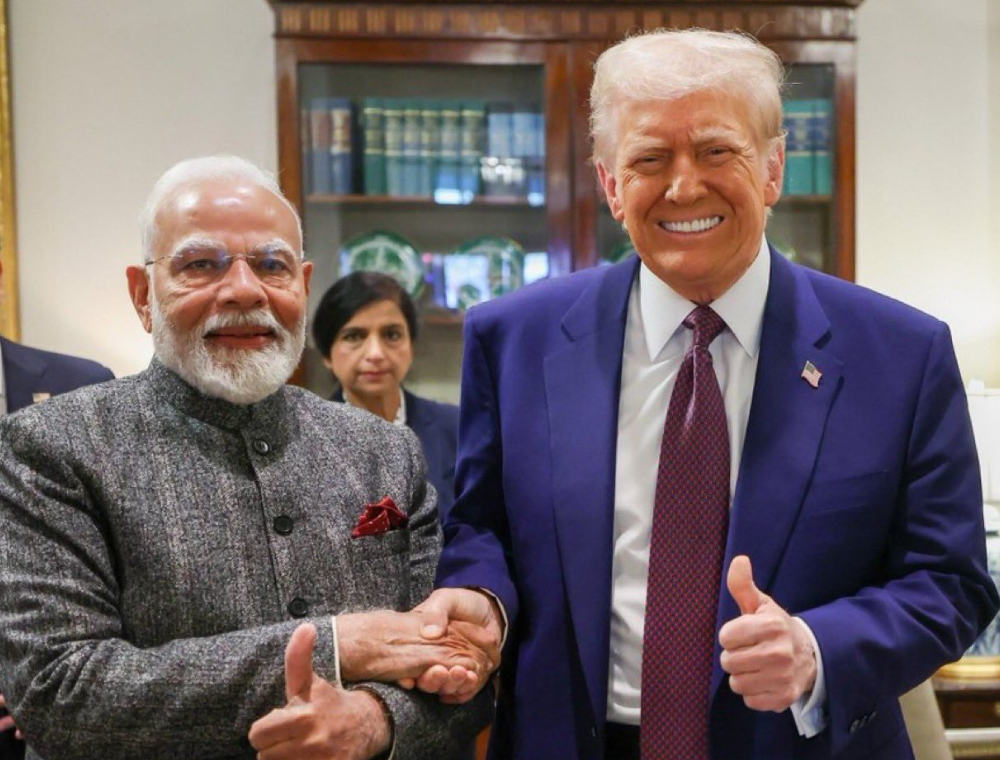
The announcement of a ceasefire between India and Pakistan has captured global attention, marking a significant turning point in the recent escalation between the two neighbors. This historic breakthrough came after prolonged high-level mediation led by the United States, with President Donald Trump playing a pivotal role.
In a late-night post on X (formerly Twitter), President Trump declared that India and Pakistan had agreed to a full and immediate ceasefire following a night of talks mediated by the United States. He commended both nations for demonstrating "common sense and great intelligence" in reaching this agreement.
Following the President’s announcement, other key figures in the US administration echoed similar sentiments. US Vice President JD Vance praised the president's team and specifically thanked Secretary Marco Rubio for his efforts. He also acknowledged the leadership of Indian Prime Minister Narendra Modi and Pakistani Prime Minister Shahbaz Sharif, highlighting their hard work and willingness to engage in dialogue.

US Secretary Marco Rubio released a statement providing more context. Over the previous 48 hours, he and Vice President Vance had been in close communication with senior Indian and Pakistani officials, including Dr. S. Jaishankar, Chief of Army Staff General Asim Munir, and the national security advisers of both nations. Their aim was to facilitate a peaceful resolution, which culminated in this ceasefire.
The ceasefire announcement follows the Pehelgam terror attack, which India strongly condemned. The country reiterated its zero-tolerance stance on terrorism and took a multi-pronged approach—military, diplomatic, economic, and cyber measures were all integrated into its response. India's well-coordinated actions not only neutralized terror threats but also projected its emergence as a power to be reckoned with on the global stage.
Major General Rajesh Kundra emphasized that India's strategy was exemplary in its execution. It wasn't just about military might—India also demonstrated its capability to manage internal affairs, cyber operations, and global diplomacy. This holistic approach, he suggested, has elevated India to a new level of global recognition and respect.
India’s firm stance also resulted in Pakistan facing international scrutiny. During a closed-door United Nations Council meeting, Pakistan's efforts to garner support fell short. Moreover, Pakistan’s nuclear posturing and rhetoric were overshadowed by international condemnation, especially following admissions related to terror financing.
Major General Kundra pointed out that India managed to exploit a crucial strategic window—demonstrating that limited objectives could be achieved without breaching nuclear thresholds. He credited the use of advanced technology for enabling precision strikes on terrorist infrastructure deep within Pakistan, particularly in regions like Punjab’s Bhawalpur, which Pakistan did not anticipate.
The international community, especially the West, appears to have taken note. The ceasefire has the potential to shift perceptions, reducing skepticism and increasing collaboration. Major General Kundra believes this development will prompt the United States and its allies to view India not merely as a regional player, but as a strategic global partner.
America’s role in this ceasefire was also strategic. According to Kundra, the initial green light given to India to act against terror threats aligned with US interests, particularly in reducing the use of such groups for transnational operations. Once India had achieved its objectives, the US stepped in to mediate and broker a ceasefire—resulting in a diplomatic win for all sides involved.
Looking forward, this ceasefire could redefine regional dynamics. It is expected to improve India’s global standing and deepen its partnerships, particularly with Western allies. The clarity and firmness in India's messaging—making it clear that future terror attacks will be viewed as acts of state support—are likely to act as strong deterrents.
The development also opens up opportunities for India to participate more actively in global peace processes. With greater credibility and international support, India now holds a stronger position in shaping not only South Asian security but also broader geopolitical narratives.
News By Sensexnifty.com team




